
If you want to optimize your website for search engines, understanding the different types of keywords in SEO is quite important.
Using keywords in the right way can make a big difference in your content's visibility and drive more targeted traffic to your site.
The most basic signal that information is relevant is when content contains the same keywords as your search query. For example, with web pages, if those keywords appear on the page, or if they appear in the headings or body of the text, the information might be more relevant.
In this blog post, we'll explore the 9 popular types of keywords in SEO, providing detailed examples and tips on how to use each type in your content marketing and SEO strategy.
Knowing these types of keywords will help you to create more effective, engaging, and high-ranking content.
What are SEO Keywords?
SEO keywords are the words and phrases that people type into search engines when they're looking for information, products, or services.
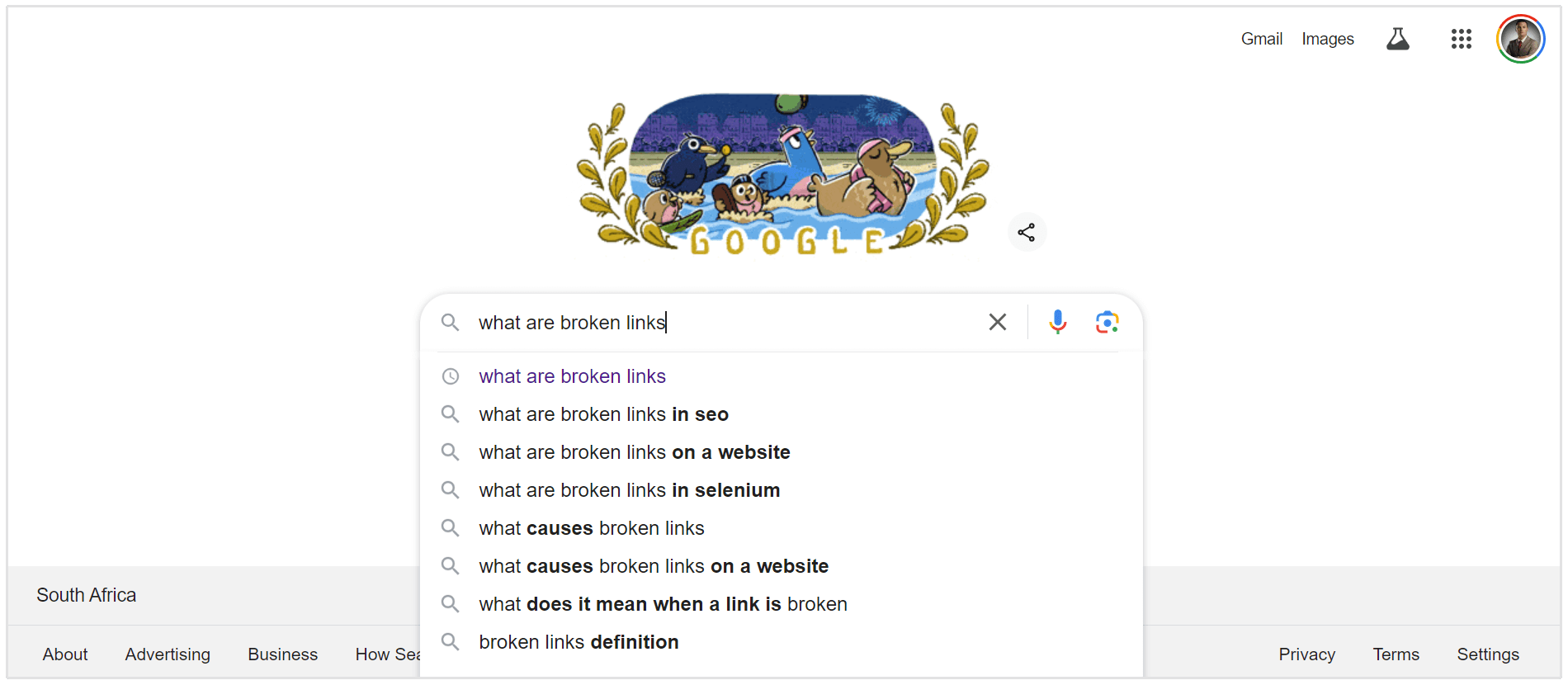
Using the right SEO keywords helps search engines understand what your website is about.
When you use these keywords in your blog posts, product descriptions, and other content, it makes it easier for search engines to match your website with the searches people are making.
You really need to make sure that the (kind of the) information that tells us what this page is about is as obvious as possible so that when users go there they’re like yes, I made it to the right page, I will read what this page has to tell me.
- John Mueller, Search Advocate at Google
Not sure how many SEO keywords you should target per page? Check out this detailed guide where we answer some of the most commonly asked questions about keyword frequency.
Types of Keywords in SEO
Now that you know what SEO keywords are, let's take a closer look at the different types of keywords in SEO.
Understanding these categories will help you create more targeted and effective content. Each type of keyword serves a unique purpose and can significantly impact your search engine rankings when used correctly.
1. Seed Keywords
Seed keywords are the fundamental terms that represent the core topics of your business or website.
These keywords are usually short, consisting of one or two words, and form the basis for creating more specific keyword variations.
Think of seed keywords as the starting point for your keyword research—they help you identify broader themes that you can then narrow down into more targeted phrases.
Let's say you run an online store selling cookware sets. In this case, your seed keyword could be "cookware."
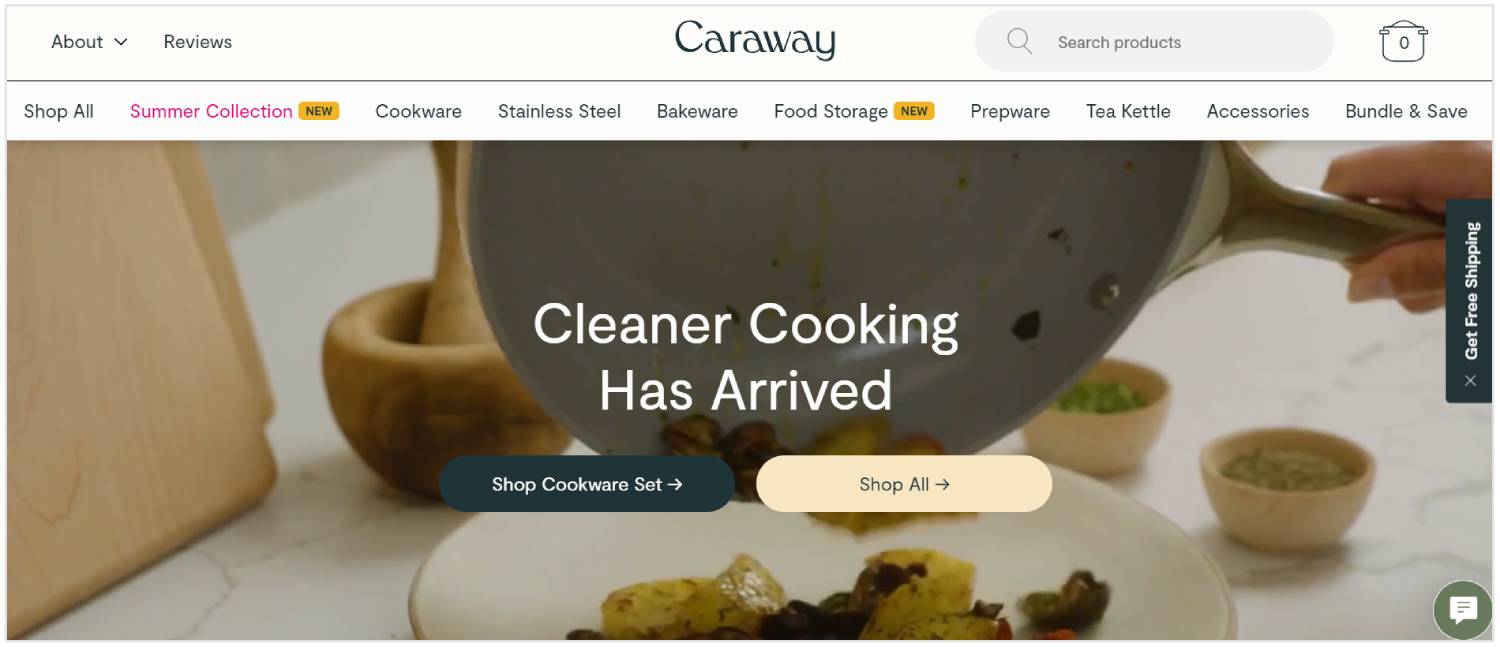
This broad term describes the primary focus of your business and serves as a starting point to discover more niche-specific keywords like "ceramic cookware sets" or "non-toxic cookware."
How to Use Seed Keywords in Your SEO
- Begin Your Keyword Research: Start with your seed keywords to generate a list of related search terms. Use tools like Google Keyword Planner or SEOptimer’s Keyword Research Tool to expand your seed keywords into more specific long-tail keywords.
- Identify Content Opportunities: Use the insights from your research to identify content gaps and opportunities. For instance, if you notice a high search volume for "types of pots," create a blog post specifically targeting that term.
- Optimize Core Pages: Use seed keywords naturally on primary pages of your website, such as your homepage, category pages, and key product pages. Ensure these keywords fit into your content without keyword stuffing.
- Generate Long-Tail Keywords: Use seed keywords to develop long-tail keywords that target more specific search queries. Long-tail keywords often have lower competition and can attract highly relevant traffic. For example, from the seed keyword "books," you might derive "best books for summer reading."
So, just to recap, you won't necessarily be using seed keywords in your content (since they are often very competitive and difficult to rank for). Instead, seed keywords will only serve as the foundation of your keyword research going forward.
2. Focus Keywords
The next common type of keyword in SEO is the focus keyword.
Focus keywords are the primary keywords that you want a specific page or piece of content to rank for in search engine results.
They represent the main topic or theme of the content and are chosen based on relevance, search volume, and competition.
How are Focus Keywords Different from Seed Keywords?
While both focus keywords and seed keywords are important in SEO, they serve different purposes.
Seed keywords are broad terms that form the foundation of your keyword research. They are used to generate more specific keyword ideas and themes for your content strategy.
Focus keywords, on the other hand, are the specific terms you select from your research to target in individual pieces of content.
For example, our seed keyword for one of our blog posts was "seo tools." However, since the competition for that keyword is quite tough and very broad, we dug deeper and found the keyword "seo software for small businesses". This became our focus keyword for the post.
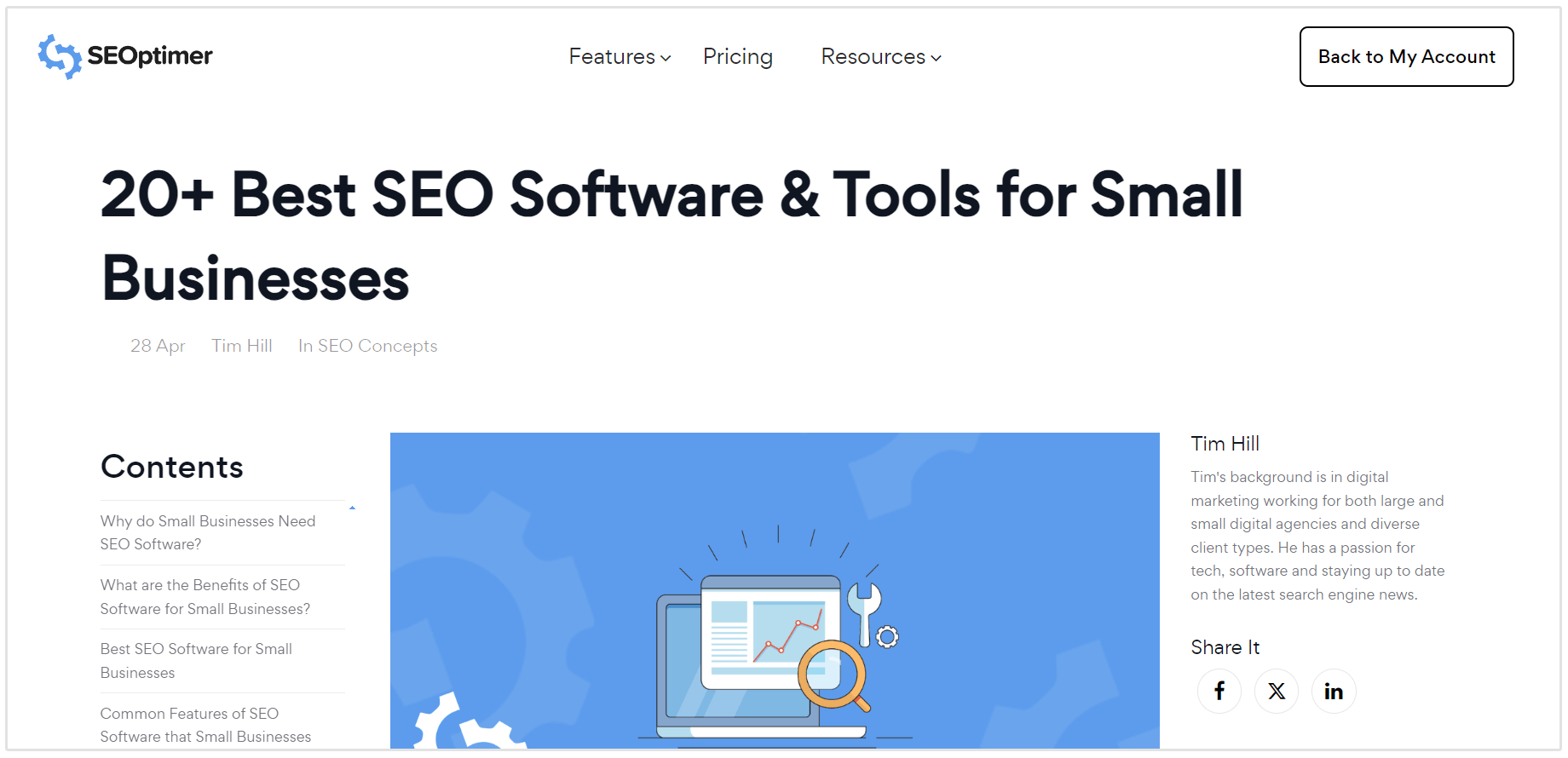
How to Use Focus Keywords in Your SEO
- Title and Meta Description: Include the focus keyword in the title and meta description of your page. For instance, if your focus keyword is "best free SEO tools," your title could be "Top 10 Best Free SEO Tools for 2024."
- Headings and Subheadings: Use the focus keyword in at least one of your headings or subheadings. This helps search engines understand the main topic of your content.
- Introduction and Conclusion: When writing a blog post, mention the focus keyword in the introduction and conclusion of your content to reinforce its relevance. For instance, start your introduction with "Finding the best SEO tools for your small business can be challenging..." and conclude with "By using the SEO tools for your small business website, you can improve your SEO performance..."
- Content Body: Naturally use the focus keyword throughout the body of your content. Aim to include it in the first 100 words and then sparingly throughout the rest of the text.
- URL Slug: Include the focus keyword in the URL slug of your page. For example, "www.yourwebsite.com/seo-tools-small-business."
- Image Alt Text and Captions: Use the focus keyword in the alt text and captions of images related to the content.
- Internal and External Links: Use the focus keyword as anchor text for internal links to other relevant pages on your site and for external links to authoritative sources.
3. Informational Keywords
Informational keywords are used by people who are looking for information or answers to specific questions.
These keywords often start with words like "how," "what," "why," or "best."
They indicate that the searcher is in the research phase and not necessarily looking to make a purchase yet, these users tend to be at the beginning of the conversion funnel.
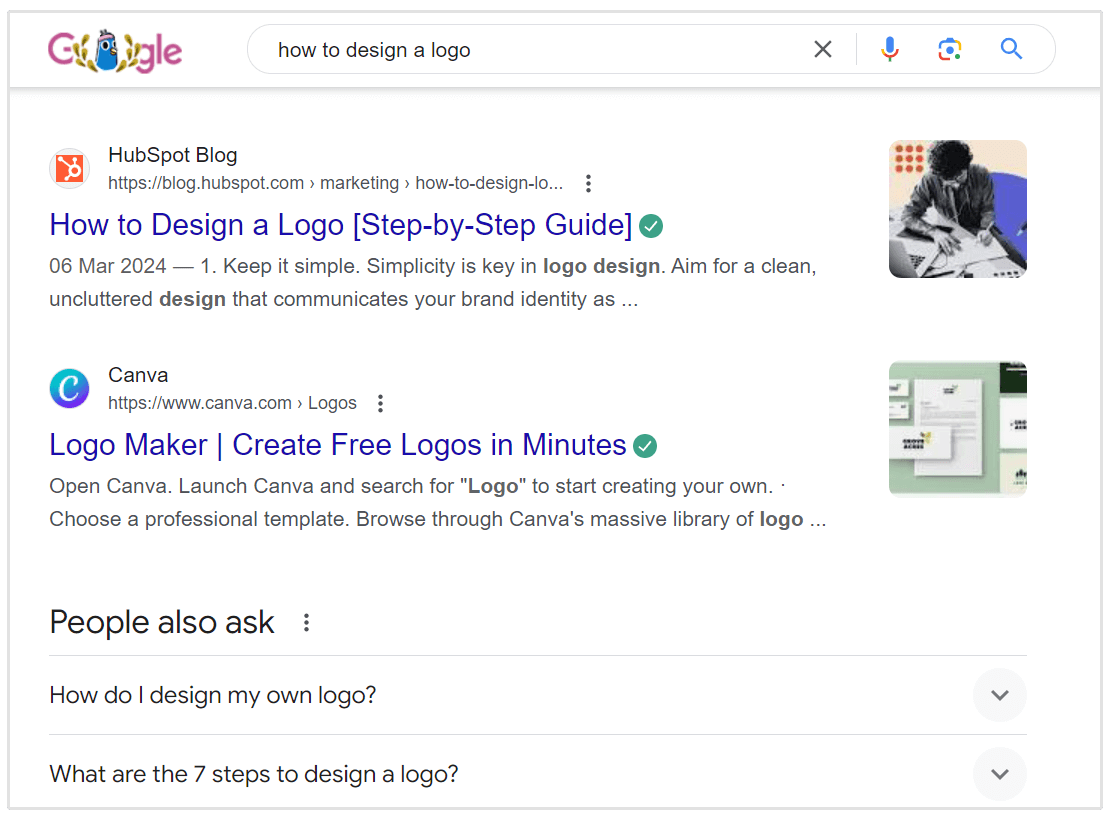
Informational keywords are useufl for attracting visitors to your site who are seeking knowledge or solutions.
For example, if you have a fitness blog, an informational keyword might be "how to build muscles fast at home."

How to Use Informational Keywords in Your SEO
- Create In-Depth Guides and Articles: Use informational keywords to create detailed guides, how-to articles, and informative blog posts. For instance, a post titled "The At-Home Workout to Build Muscle Fast" would attract readers looking for that information.
- Answer Common Questions: Identify common questions related to your niche and create content that answers these questions. This helps establish your site as a reliable source of information. You can use tools like Answer the Public to find popular questions that people are asking about your focus keyword.
- Optimize for Featured Snippets: Informational keywords are great for targeting featured snippets. Structure your content to directly answer questions in a concise and clear manner, increasing the chances of being featured.
- Use in FAQs: Include informational keywords in a Frequently Asked Questions (FAQ) section on your website. This not only helps with SEO but also provides valuable information to your visitors.
4. Transactional Keywords
Transactional keywords, also known as high-intent keywords, are used by people who are ready to make a purchase or take a specific action. These keywords often include terms like "buy," "order," "discount," or "deal."
They indicate that the searcher is looking to engage in a transaction, whether it's buying a product, signing up for a service, or taking advantage of a special offer.
For example, if you run an online store that sells modular furniture, a transactional keyword might be "buy furniture online."
How to Use Transactional Keywords in Your SEO
- Product Pages: Optimize your product pages with transactional keywords. Ensure that the keyword appears in the title, meta description, product description, and headings.
- Landing Pages: Create dedicated landing pages for specific offers or promotions using transactional keywords. If you have a sale on lounge sofas, a landing page titled "Shop Modular Lounge Sofas" can attract visitors looking for deals.
- Call-to-Actions (CTAs): Use transactional keywords in your CTAs to encourage visitors to take action. Phrases like "Order Now," "Get Your Discount," or "Buy Today" can be effective.
- Reviews and Comparisons: Create content that includes transactional keywords alongside product reviews or comparisons. For example, an article titled "Most Comfortable Modular Sofas 2024" can attract buyers who are ready to make a purchase after reading reviews.
- Schema Markup: Use schema markup to enhance your product listings in search results. This can make your offers stand out and provide additional information, such as prices and reviews, which can attract buyers.

5. Long-Tail Keywords
Long-tail keywords are longer and more specific phrases that users type into search engines. These keywords typically consist of three or more words and target niche audiences.
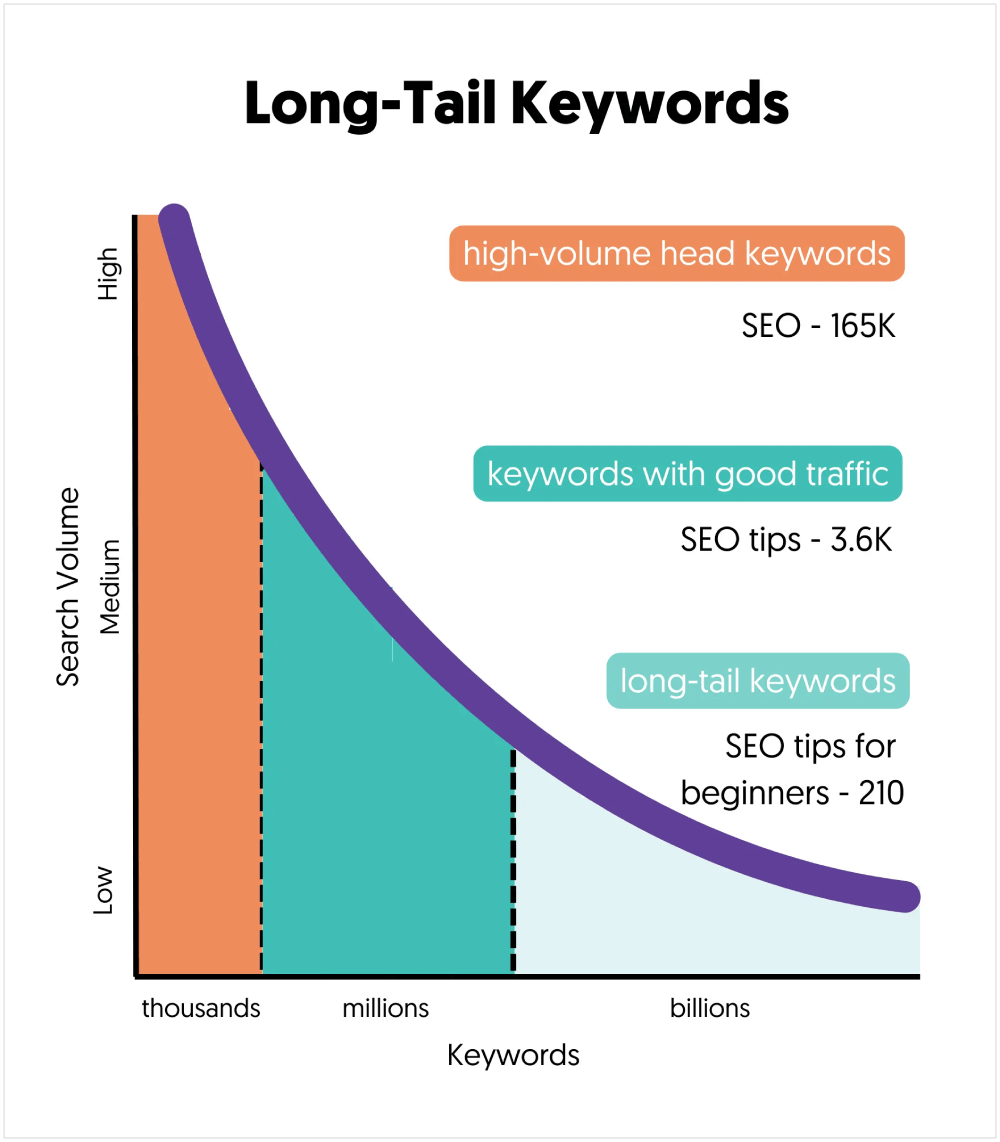
Long-tail keywords often have lower search volumes but higher conversion rates because they capture more precise search intent.
If you don’t have a long-tail SEO strategy, you’re missing out.
- Aleh Barysevich, Founder of SEO PowerSuite
Take note: Long-tail keywords can also be informational in nature, helping users find answers to their questions.
For example, if you own a travel blog, a long-tail keyword might be "best family beaches beaches in Los Angeles."
How to Use Long-Tail Keywords in Your SEO
- Target Specific Audiences: Use long-tail keywords to target specific audiences and niches. For instance, creating content like "Best Family-Friendly Beaches in Florida" helps attract visitors specifically looking for family vacation spots.
- Blog Posts and Articles: Write blog posts and articles that answer specific questions or provide detailed information. Long-tail keywords like "how to plan a family vacation to LA" can drive targeted traffic to your site.
- Voice Search Optimization: As voice search becomes more popular, optimizing for long-tail keywords is crucial. People tend to use natural, conversational language when using voice search, making long-tail keywords more effective. For example, optimizing for "what are the best family-friendly beaches in Los Angeles?" can capture voice search traffic.
- Content Clusters: Create content clusters around long-tail keywords. Start with a pillar post that covers a broad topic, then link to more specific articles. For example, a pillar page on "Los Angeles Beaches" can link to detailed posts on "best family-friendly beaches in LA" and "best secluded beaches in LA."
- Informational and Transactional Mix: Remember that long-tail keywords can be both informational and transactional. For example, "best family-friendly beaches in Florida" is informational, while "book family-friendly beach resort in Florida" is transactional. Use both types to attract visitors at different stages of the buying journey.
By adding long-tail keywords into your SEO strategy, you can attract highly targeted traffic, improve your chances of conversion, and meet the specific needs of your audience.
6. Niche Keywords
Niche keywords are highly specific phrases that target a narrow segment of your audience. These keywords focus on specialized topics or industries with less competition compared to broader terms.
By targeting niche keywords, you can attract a dedicated and engaged audience interested in very particular subjects or products.
For example, if you run a blog about vegan cooking, a niche keyword might be "vegan gluten-free dessert recipes." As you'd imagine, this keyword is quite niche and targets a very specific user.
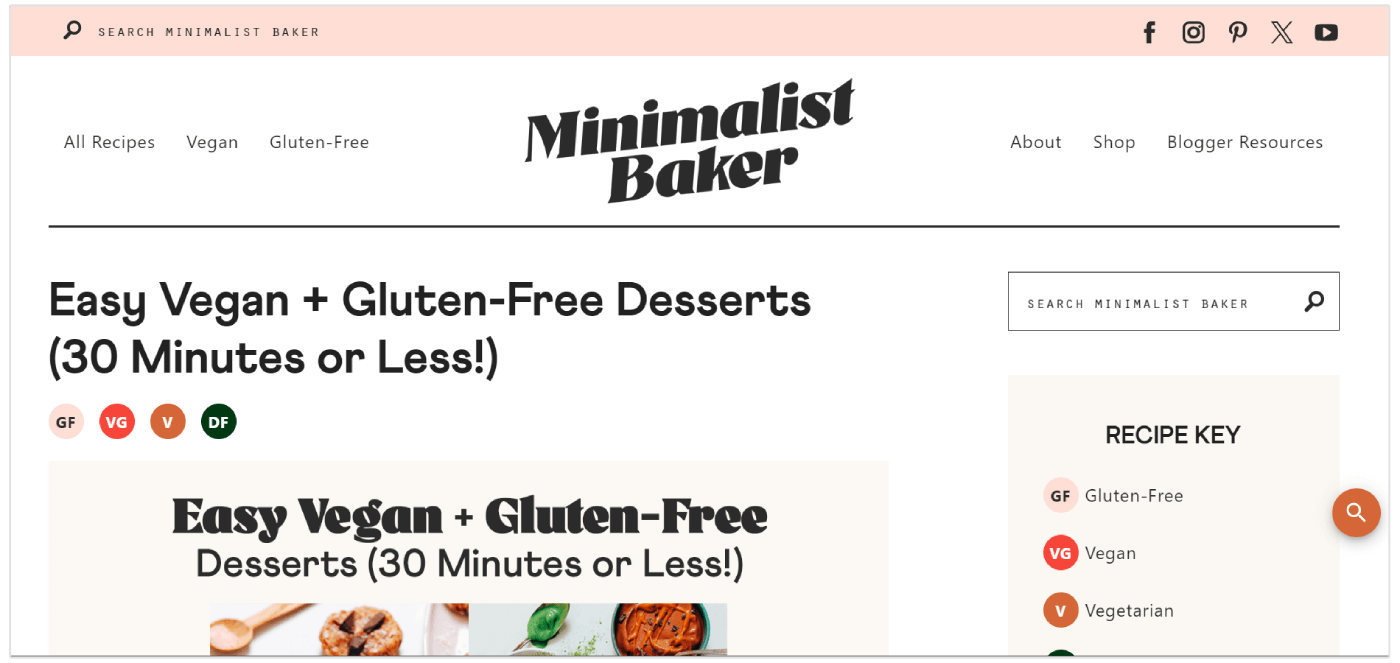
Instead of just targeting someone searching for gluten dessert recipes or vegan dessert recipes, this keyword combines both audiences.
How to Use Niche Keywords in Your SEO
- Create Detailed Content: Develop in-depth content that thoroughly covers niche topics. A blog post titled "10 Delicious Vegan Gluten-Free Dessert Recipes" can attract readers looking for specific dietary options.
- Product Pages: Optimize product pages with niche keywords to attract highly interested buyers. If you sell vegan baking ingredients, use keywords like "vegan gluten-free flour" in your product descriptions to target niche shoppers.
- Build Authority: By consistently creating content around niche keywords, you can establish yourself as an authority in that specific area. This helps build trust with your audience and improves your site's credibility.
- Combine Long-Tail with Niche Keywords: Combine long-tail and niche keywords to capture highly specific searches. For example, a keyword like "easy vegan gluten-free dessert recipes for beginners" is both long-tail and niche, attracting a very targeted audience.
- Community Engagement: Engage with online communities and forums that focus on your niche. Share your content and participate in discussions using your niche keywords. This helps drive targeted traffic to your site and builds relationships with potential customers.
7. Branded Keywords
Branded keywords are keywords that include your brand name or variations of it.
These keywords are used by people who are already familiar with your brand and are specifically looking for your products or services, meaning they are likely ready to convert to customers.
In the case of SEOptimer, a branded keyword might be "SEOptimer SEO audit tool."
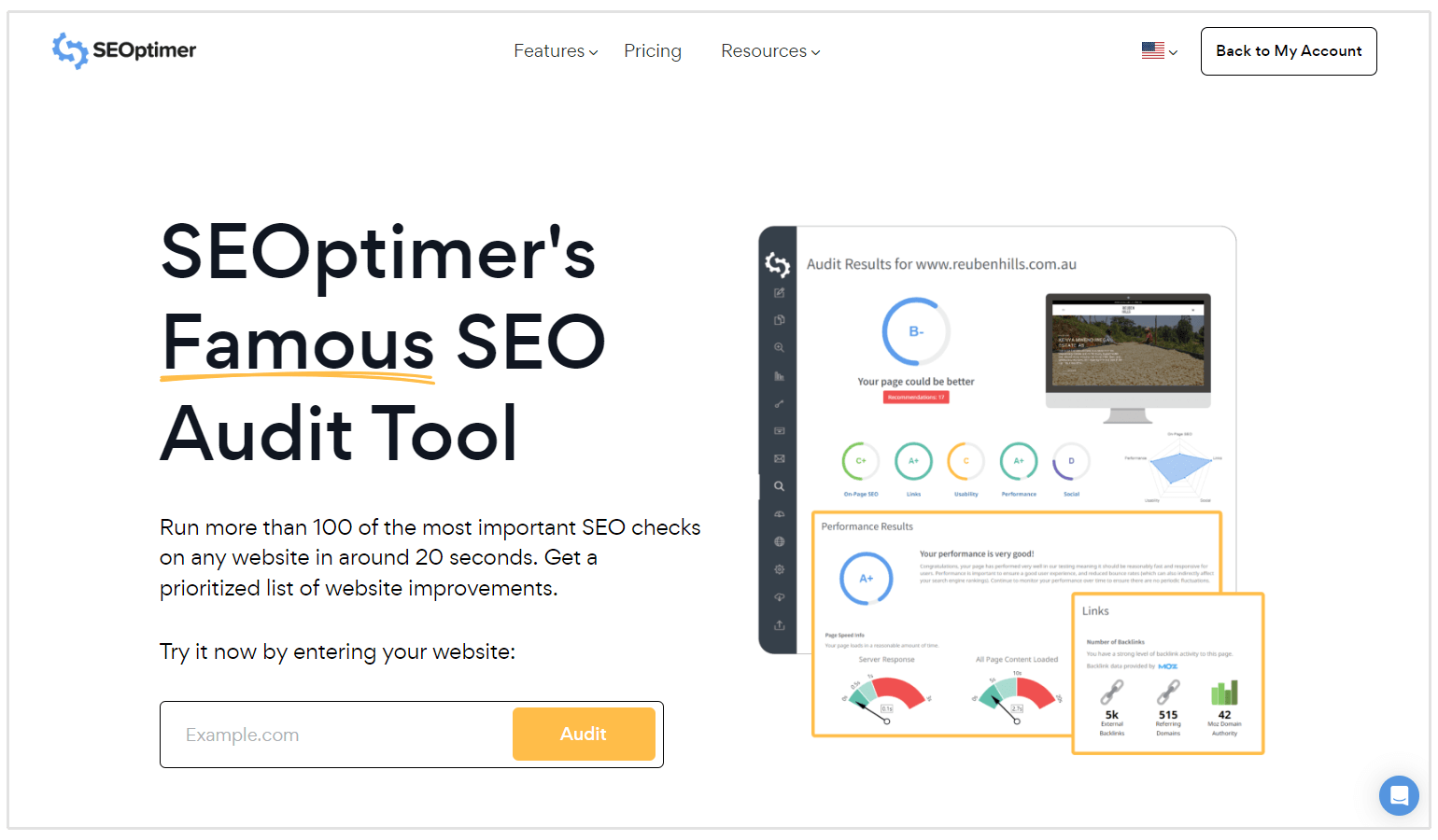
How to Use Branded Keywords in Your SEO
- Optimize Brand Pages: Ensure that key pages on your website, such as the homepage, about page, and product pages, are optimized for branded keywords. For instance, we used "SEOptimer's Famous SEO Audit Tool" as the main headline for our tool's feature page.
- Monitor and Protect Your Brand: Regularly monitor search engine results for your branded keywords to ensure your brand maintains a positive presence. This can help you find and address any negative content or perception of your brand.
- Create Branded Content: You should try to create content that reinforces your brand identity and includes your branded keywords. For example, we've got mutlipe blog posts showcasing users how to use SEOptimer's set of SEO tools.
- Encourage User-Generated Content: Motivate your customers to create and share content using your branded keywords. This can include reviews, social media posts, and unboxing videos. Encourage the use of hashtags like #SEOptimerSEOAuditTool to build a community around your brand.
8. Secondary Keywords
Secondary keywords are additional keywords that support and enhance the primary keywords you are targeting. While they are not the main focus of your content, they help provide context and depth, making your content more comprehensive and relevant.
Secondary keywords often relate to the primary keyword but are slightly less specific. They help capture additional search traffic and can improve your content's overall SEO performance.
Let's look at a blog post that we've recently about ChatGPT and SEO. The focus keyword for this blog post is "ChatGPT prompts for SEO", but then the secondary keyword that we've used is "How to Use ChatGPT for SEO."
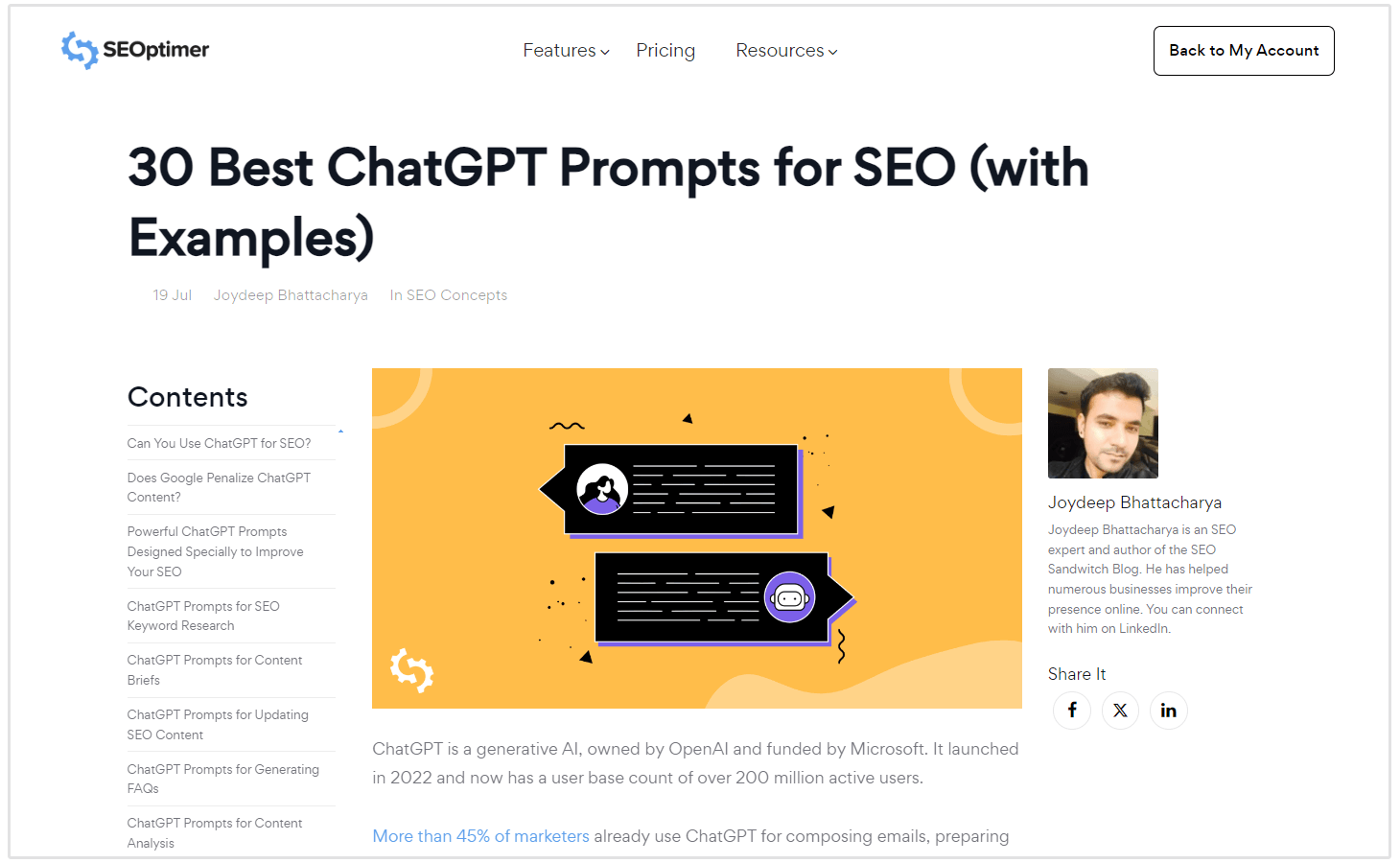
How to Use Secondary Keywords in Your SEO
- Enhance Content Relevance: Incorporate secondary keywords throughout your content to make it more relevant to various search queries. This can help improve your content’s visibility and relevance in search engine results.
- Optimize Headings and Subheadings: Use secondary keywords in headings and subheadings to structure your content effectively. For our example of ChatGPT and SEO, we used headers such as "What are the Benefits of Using ChatGPT for SEO" and "ChatGPT Prompts for SEO Keyword Research."
- Improve Internal Linking: Use secondary keywords as anchor text for internal links within your site. Linking to related articles or pages with secondary keywords helps search engines understand the relationship between different pieces of content.
- Diversify Content Topics: Create content that addresses various aspects related to your primary keyword by incorporating secondary keywords. In our example of ChatGPT for SEO, we can now create supplementary blog posts such as "How to Use ChatGPT and AI to Audit Technical SEO" or "How to Find Content Gaps Using ChatGPT."
9. Location-Specific Keywords
Location-specific keywords are used to target searches related to a particular geographic area. For instance, is someone in Denver is looking for an emergency plumer, they would type "emergency plumber Denver" into Google to find relevant service providers in their city.
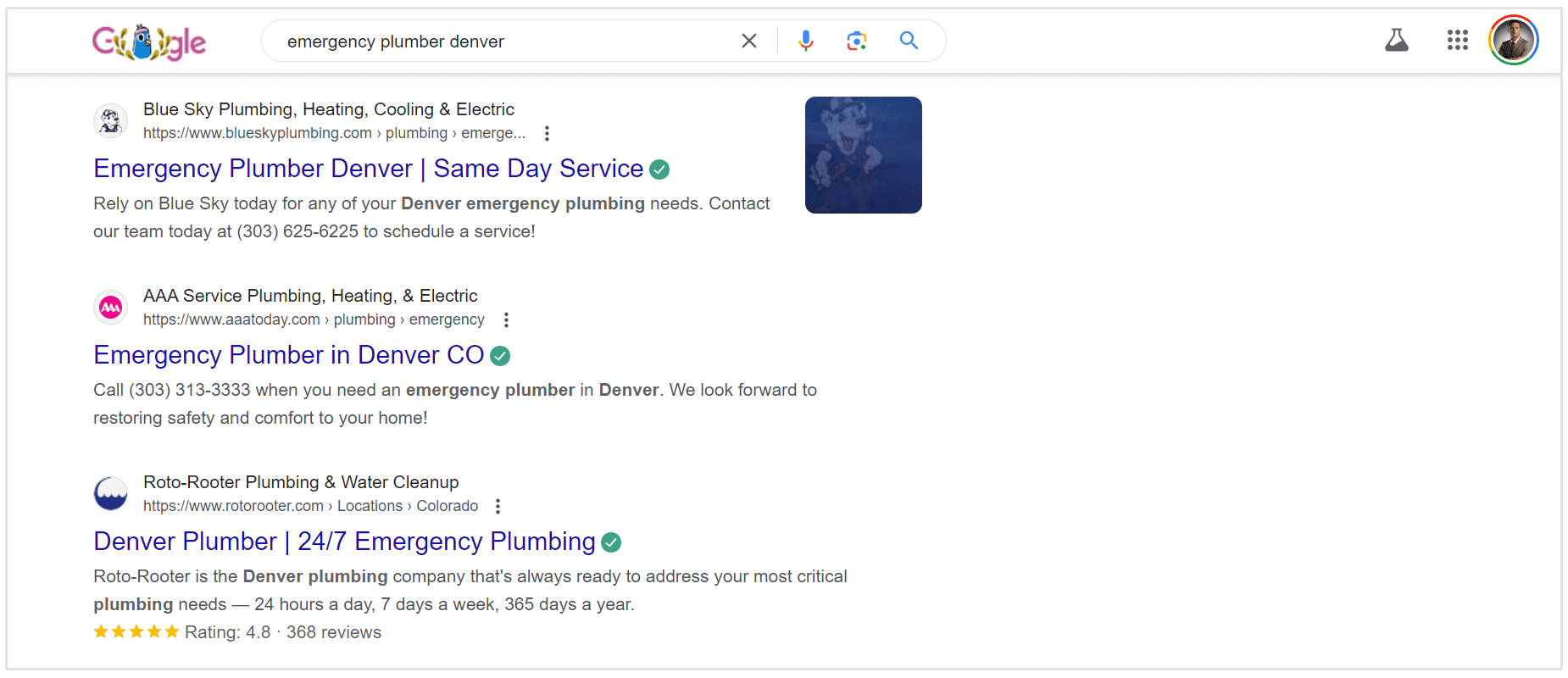
These keywords are especially relevant for local SEO, helping businesses attract customers who are searching for products or services in their vicinity.
By using location-specific keywords, businesses can increase their visibility in local search results and connect with potential customers who are nearby.
For example, if you own a coffee shop in Seattle, a location-specific keyword might be "coffee shop in Seattle."
How to Use Location-Specific Keywords in Your SEO
- Local Listings and Directories: Ensure your location-specific keywords are used in local business listings and directories. For example, your Google My Business profile should include "coffee shop in Seattle" in the description.
- Optimize Local Pages: Create and optimize pages on your website that target specific locations. For instance, a page titled "Best Coffee Shop in Seattle" can attract local customers searching for coffee options in your area.
- Local Content: Write blog posts and articles that focus on local events, news, or topics relevant to your area. For example, "Top 5 Coffee Shops to Visit in Seattle" can help draw attention from people looking for local coffee recommendations.
- On-Page Elements: Include location-specific keywords in important on-page elements such as titles, meta descriptions, headers, and image alt text. For instance, use "coffee shop in Seattle" in the title tag and meta description of your website.
- Local Link Building: Seek opportunities for local backlinks from local blogs, news sites, and community organizations. This can help improve your authority and relevance in local search results.
- Mobile Optimization: Optimize your website for mobile users, as many location-specific searches are performed on mobile devices. Ensure that your site loads quickly and provides a seamless experience for users looking for local information.
Conclusion
Using the right mix of keywords into your SEO strategy is a key part of improving search engine rankings and reaching your target audience.
By understanding and using the various types of SEO keywords we discussed, you can create a well-rounded approach that addresses different search intents and audience needs.
Remember, a successful SEO strategy not only focuses on keyword optimization but also on delivering valuable, relevant content that resonates with your audience.
By applying the insights shared in this guide, you'll be well-equipped to enhance your SEO efforts and drive more meaningful traffic to your site.










